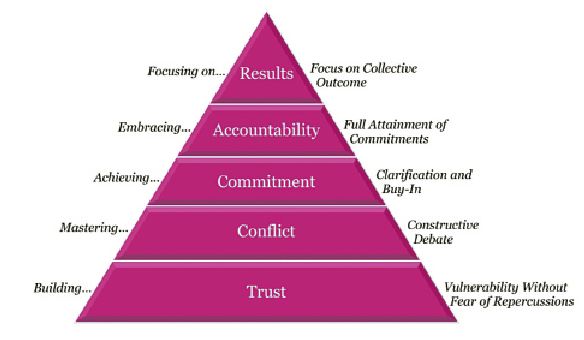We are in uncharted territory when it comes to Covid vaccine uptake, writes Ultan Molloy
Yes, I nearly actually ‘went there’ recently in response to a social media post that appeared in my feed. I think the stresses of the last year have finally caught up with me. This fine thought of mine was in response to another of those ‘sure, Covid-19 doesn’t affect me, so why would I get the vaccination?’ tweets gaining traction on the social amplifier for bigotry that is Twitter.
Darwin’s survival of the fittest met Amazon Prime Video’s Hunters in my mind, and got me at an ebb of frustration. Admittedly, I had to do some soul-searching around whether or not I’d be lining-up early to get the Covid-19 vaccination when it comes available, it being ‘new’ and all that. My conclusion is that I am keen to get it ASAP now, for a number of reasons.
Firstly, I don’t want it on my conscience if I was to spread it to someone vulnerable, or indeed to anyone that I may come into contact with. Secondly, and somewhat tied-in with this, I feel a social responsibility to look out for others by becoming part of the vaccinated herd, in order to push us toward that critical level of uptake required to eradicate this strain and prevent its spread. Thirdly, vaccine technologies are not new, and have thankfully eradicated a number of deadly diseases from our planet.
Trust me, I’m a Pharmacist
“I wonder how Bill Gates will spend his first day in control of 90-year-old Margaret Keenan in Coventry” I had read online following Margaret’s 8 December Covid-19 vaccination. It highlights the ridiculousness of one of the many conspiracy theories out there embraced by the anti-vax brigade. Oh, and for the record, having someone on national TV who says they’re not having the vaccine as they ‘don’t know what is in it’ in the name of balanced journalism is reckless and irresponsible, rather than balanced. Scientific and medical professionals recommend it. Our public health service will advocate for uptake.
So what is the discussion about here? Surely the only discussion should be about whether or not vaccination is made mandatory, as in many other countries, for the sake of whole-population health. Andrew Wakefield’s ongoing deceit and sociopathic narcissism continues to do damage since he falsified links between the MMR vaccine and autism in 1998. He was subsequently struck-off as a medical doctor. MMR outbreaks have since happened in Ireland, with the HSE offering the vaccine free now to older children and adults up to the age of 30, as the vaccination rate has dropped.
Wakefield is a convenient champion for anti-vax people who are more plausibly scared of something new, and somewhat invasive, in a culture of individualism and increasing scepticism. Indeed, the uptake of the free vaccinations for children and teenagers have been relatively poor. ‘Not my child, sure aren’t they healthy, and sure you wouldn’t know what’s in those things.’ ‘Let other children get it if they want.’ ‘I’ve never heard of children getting the flu anyway.’
‘I decide what can be given to my children.’ There is a very steep educational and emotional learning curve to be embraced by the HSE, and all of us at the coalface, if vaccines are to get traction. Perhaps making them mandatory is the way to go? That would surely accelerate Sinn Féin’s ascent into power. The anti-intellectual and disillusioned countrymen and women will be out in force come next general election.
I hope that Covid-19 vaccine uptake will be significant early this new year, although I think the level of resistance to getting the vaccine will be surprisingly high, and the message needs to be expertly managed early and often. Who will take the responsibility for that job, and do it well, I wonder? Perhaps with high uptake, we will get back to the ‘old normal’, from our more unsociable ‘new normal’, sooner rather than later, and bringing those wholesome learnings around our relationships, our priorities, our communities, and more, with us into the future.
Stepping up
Pharmacists, and most importantly the full pharmacy team, have really stepped up countrywide and shown the value of our accessible healthcare provider network to so many. It is difficult to see how things will evolve for us, given there is much to unpack around how we operate as retail community pharmacy businesses, and what could be. Relationships at the top table with Government stakeholders, and the ability to influence and build on more recent positive steps forward, such as the extended flu vaccination campaign, and a likely (at the time of writing this) involvement in the Covid-19 vaccination roll-out, are small but significant wins.
The damning inertia of the last decade may have finally come to an end, and an appetite for progressive and innovative steps forward to leverage our capacity for the sake of patient care would be most welcome. I am reminded of the Five Dysfunctions of a Team book by Patrick Lencioni, and the five behaviours of a cohesive team when it comes to our stakeholder relationships in Irish pharmacy (see Figure 1).

A bottom-up model, one can see that the sequence of building trust, mastering conflict, achieving commitment, embracing accountability and focusing on results requires helpful behaviours from those on the team. This may be consultative groups, representative bodies, our own pharmacy teams or indeed when we team-up with our patients to support their treatment outcomes. The first challenge clearly is in building trust and sharing some level of vulnerability without fear of repercussions, and embracing a shared humanity, and wholesome intention, before much can happen up the pyramid.
The damning inertia of the last decade may have finally come to an end
I would imagine that it is less than easy to trust civil servants and the a Department of Health who have consistently ballaragged our profession, undermined our businesses’ financial viability and dismissed our efforts to innovate and extend services so as to better serve the Irish public. Nearly 2,000 outlets available, with access to the most accessible and trusted healthcare providers for and by the Irish public? Trust is apparently seen as a ‘nice to have’, where power play and coercion are readily embraced, rather than it being seen as a necessity for building strong and lasting collaborative and professional relationships.
There are more pharmacies than newsagents in some towns. So what’s the big deal. It’s fantastic that such access is there for patients and the whole Irish public? We are clearly independent and entrepreneurial-minded as a profession, and hence the preference is often to open and service a pharmacy oneself. How can anyone suggest that unless pharmacies start closing, there are somehow excess monies in the system that the Government is somehow entitled to take back, given our efficiency, professionalism, and the associated business and personal risks involved in opening and running a pharmacy?
Sure, you want to get the best return for your spend for the sake of the Irish public, then show me how it is not happening when it comes to the Irish community pharmacy sector first, before you look to save money on a drugs budget. The dispensing fees fund practically everything.
They fund the ‘free’ access to the pharmacist, the 30,000 employees’ wages in the sector (and that’s before we consider wholesaler and service sector employees that service the sector), the business overheads, along with the stockholding and everything else. That’s the model. If you want a new model, then consult with stakeholders, empathise, develop a shared vision for Irish pharmacy into the future and a fit-for-purpose contract. That would be a win-win-win for the HSE, pharmacists and patients, looking to the future, and to the potential that has been for so long ignored in the community pharmacy network. Let’s see what this New Year brings.
2021
While it seemed that every third script this year was for sertraline, I now feel an excitement writing this and cautious optimism around what this coming year will bring for us as a profession and as a society. Trump is all but finished in the States, and Boris will no doubt have made a mess of things that may help accelerate his departure in the UK, which will be another win for integrity.
Irish politics may need to go through some hard times in the coming years before we have more to cheer about, and we will prevail. I’m going to start my resolutions early, as I write this in mid-December, and spend less time on Twitter, and more time on the things that really matter to me. I hope that this coming year is a good one for you personally, your family, your business and our communities. Remember, we are heading toward summer, and the days are getting longer already !








